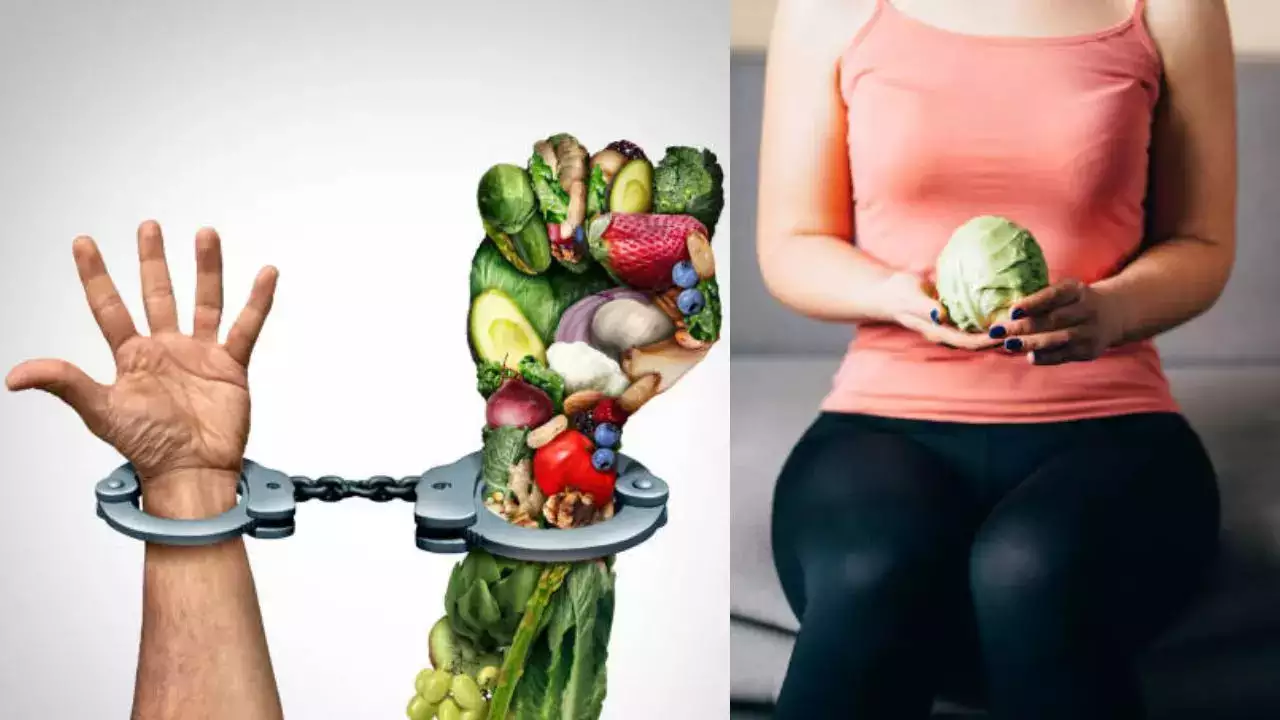
Dubbed as an eating disorder that involves an unhealthy obsession with healthy eating, the condition was first coined in 1997
It is good to eat healthy, nutritious, and fresh food—both for your physical as well as mental health. However, for some people, this focus becomes an obsession that slowly develops into an eating disorder known as orthorexia, or orthorexia nervoLike other eating disorders, orthorexia has severe consequences, as this complex condition also leads to many other mental health issues like obsessive-compulsive disorder (OCD) and other eating disorders.
Many experts have called for orthorexia to have its own diagnostic criteria and treatment plan.
What is orthorexia nervosa?
Dubbed an eating disorder that involves an unhealthy obsession with healthy eating, the condition was first coined in 1997. The term is derived from the Greek words “orthos,” which means “right,” and “orexis,” which means “appetite.” However, in practice, it’s better translated as “correct diet.”
Unlike other eating disorders, orthorexia revolves around food quality and not quantity; those with this condition mostly focus on the perceived healthfulness of food rather than on losing weight or being thin.
Doctors say those with the condition exhibit an extreme fixation on the “purity” or “cleanliness” of their foods, as well as an obsession with the benefits of healthy eating. Studies say a majority of vegans and vegetarians have higher rates of orthorexia. However, it is also a fact that for these people, choosing to be vegan or vegetarian is just a symptom of orthorexia rather than a cause.
Signs and symptoms of orthorexia
Even though there are no official diagnostic criteria for orthorexia, there are a few signs and symptoms that someone with the condition may exhibit, such as:
- Having an intense fear of unhealthy foods and avoiding them
- Being obsessed with healthy and nutritious foods
- Not able to deviate from a specific eating style
-
Obsessively following a dietary pattern
- Cutting out large groups of food despite having no medical, religious, cultural, or ethical reason for doing so
- Spending all your time in planning, buying, and preparing healthy meals
- Showing an unusual interest in or excessively critical view of other people’s eating habits
- Always reviewing menus or thinking about the foods served at events
- Not going to social events thinking foods served there will be unhealthy
- Losing weight in an unhealthy manner – due to restricting food
What causes orthorexia?
According to doctors, for those people who simply begin tweaking their diets with the intention to improve their health and just go overboard, orthorexia hits them hard. Over time, good intentions and an interest in supporting health can develop into an unhealthy mental health issue.
Even though experts are not sure what exactly causes orthorexia, many factors seem to play a role in its development. A few of these include:
Obsessive-compulsive tendencies with food
In many cases, doctors say orthorexia manifests as a more socially acceptable way to restrict food you deem unhealthy.
Anxiety
Those individuals who have a history of anxiety and stress are more prone to developing this eating disorder.
Social factors
Experts say for many people, social factors like more knowledge of nutrition, higher income and access to clean and organic foods can drive you toward developing orthorexia
Weight issues
Many people who face weight stigma or bias are also associated with orthorexia-related behaviours
How does orthorexia affect your daily life?
Orthorexia has several negative health effects:
- Severe malnutrition
- Anemia
- Abnormally slow heart rate
- Digestion problems
- Electrolyte and hormonal imbalances
- Metabolic acidosis
- Weakness
- Weakened immune system
- High anxiety and stress
- Social isolation
Get Latest News Live on Times Now along with Breaking News and Top Headlines from Diet, Health and around the world.
